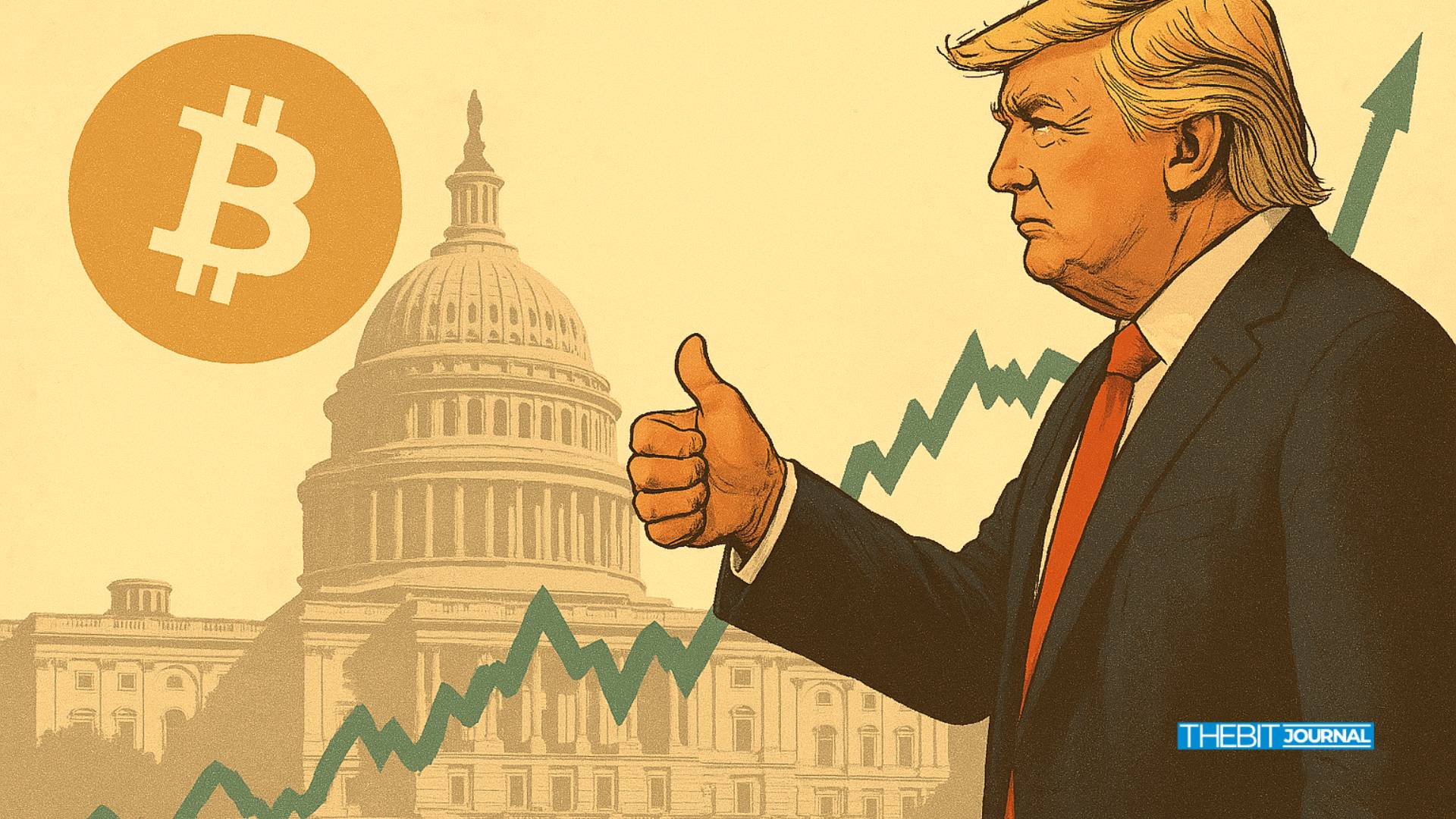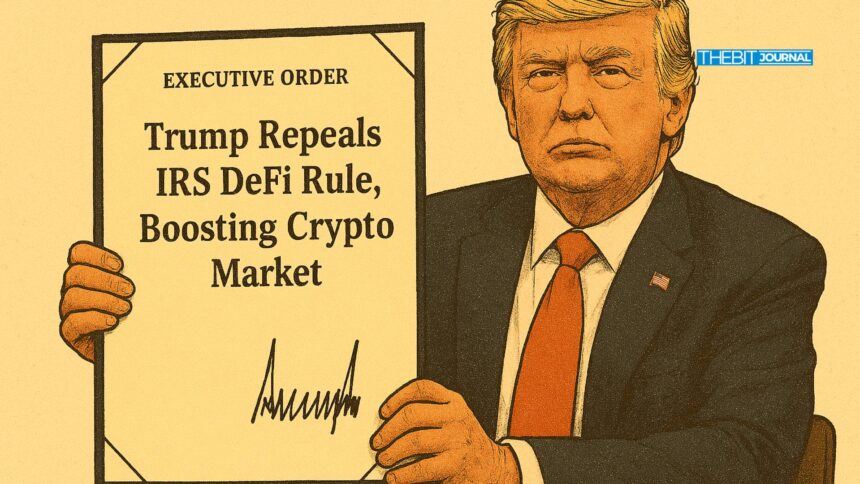U.S. President Donald Trump has officially nullified a contentious IRS rule that aimed to classify decentralized finance (DeFi) platforms as brokers. The crypto community has hailed the move as a crucial victory for privacy, innovation, and decentralized ecosystems — a decision that could reshape the future of blockchain policy in the United States.
On April 10, 2025, Trump signed a Congressional resolution overturning the IRS provision that required DeFi and self-custodial wallet developers to comply with burdensome tax reporting requirements. The decision quickly gained momentum across major crypto media outlets, with industry leaders calling it a turning point for decentralized finance in America.
“The DeFi Broker Rule was a misguided attempt to regulate something regulators barely understand,” said Congressman Mike Carey local media, a vocal supporter of the repeal. “This reversal marks a win for American innovation, personal freedom, and sensible crypto policy.”
DeFi No Longer Under the IRS Microscope
The now-defunct rule passed during the previous administration expanded the definition of “broker” to include developers and entities behind DeFi applications — even if they did not custody user funds. Critics had warned that the rule was “unenforceable,” especially in the decentralized realm where platforms often lack identifiable intermediaries.
Blockchain Association CEO Kristin Smith praised the repeal, stating that “DeFi can finally breathe again,” after what she called a year of “regulatory overreach.” Many in the space argued that requiring developers to report user activity would not only violate user privacy but also cripple open-source innovation.
The removal of the rule represents a philosophical shift in how U.S. lawmakers are approaching decentralized systems — and could set the tone for future crypto policy reforms under a Trump administration.
Market Confidence Rises Despite Macroeconomic Headwinds
The timing of the repeal could not have been more strategic. Cryptocurrency markets have been reeling from macroeconomic headwinds, including global inflation and renewed U.S.-China trade tensions. While major assets like Bitcoin and Ethereum had taken a dip earlier in the week, the repeal breathed fresh optimism into an otherwise cautious market.
“Regulatory clarity is one of the most important factors for long-term price stability,” said Moreno of CryptoQuant. “Removing barriers like this IRS rule sends a strong signal to institutional investors that the U.S. is serious about supporting blockchain innovation.”
Although Bitcoin remains volatile, the broader sentiment among analysts is bullish in the long term — especially for DeFi-related tokens that had been under pressure from looming tax uncertainties.

What This Means for U.S. Crypto Regulations
While this repeal represents a win, it’s only part of a broader legislative battle unfolding in Washington. Trump’s decision reopens the debate on how decentralized platforms should be regulated — and who should be responsible for user activity within trustless protocols.
Proponents of crypto-friendly policy argue that legacy frameworks must not smother innovation. “Decentralization demands a decentralized legal approach,” tweeted Compound’s founder Robert Leshner in response to the ruling.
Experts are now calling for a more collaborative dialogue between lawmakers and blockchain builders — one that favors agile and forward-thinking legislation over sweeping enforcement.
Could This Set a Global Precedent?
Beyond the U.S., crypto communities worldwide are watching closely. The repeal has already sparked conversations among EU policymakers and regulators in Asia, many of whom are grappling with their own versions of crypto taxation and DeFi definitions.
If America leads with innovation-first policies, it could trigger a global trend toward lighter-touch regulatory frameworks. Countries like the UAE and Singapore — already hailed as crypto-friendly jurisdictions — may follow suit with similar moves to attract blockchain talent and capital.
Conclusion
Trump’s decision to repeal the IRS DeFi broker rule marks a monumental moment for the crypto industry. It not only removes an existential threat to decentralized platforms but also sets the tone for more balanced regulation. With U.S. policymakers warming up to digital finance, the path ahead looks more promising for developers, investors, and innovators shaping the decentralized future.
But while this is a clear step forward, the industry remains on alert. The next battleground will be how DeFi platforms are monitored and supported without compromising their decentralized essence.
FAQs
What was the IRS DeFi Broker Rule?
It was a regulation that required DeFi platforms and developers to report user transactions to the IRS as if they were traditional brokers.
Why was it considered a threat to DeFi?
Because most DeFi systems are decentralized and anonymous, the rule would have made it impossible for platforms to comply without undermining user privacy and protocol design.
Who supported the repeal?
Congressman Mike Carey introduced the resolution. Trump signed it into law. Industry figures and advocacy groups like the Blockchain Association backed it heavily.
How will this affect the crypto market in the long term?
The repeal boosts market confidence, particularly for DeFi projects. It signals that future U.S. regulations may take a more innovation-friendly approach.
Glossary of Key Terms
DeFi (Decentralized Finance): Blockchain-based financial services without intermediaries.
IRS (Internal Revenue Service): U.S. federal tax authority.
Broker Rule: IRS regulation defining who must report user financial activity.
Custodial Wallet: A crypto wallet managed by a third party (opposite of self-custody).
Regulatory Clarity: Clear legal frameworks that reduce uncertainty for businesses.






























